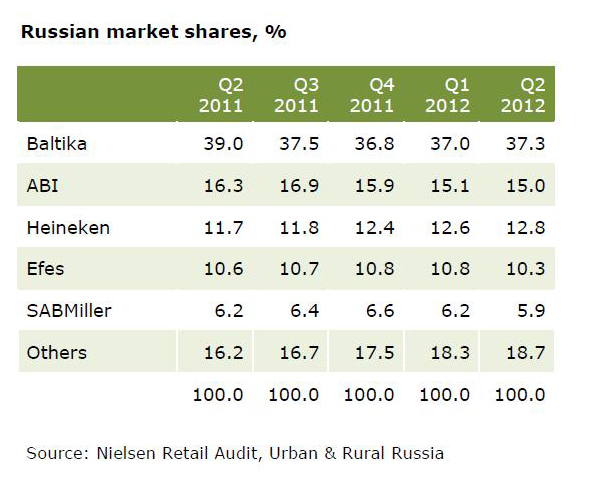These days, Czech citizens could be forgiven for thinking that Czech Government is an oxymoron – a contradiction in terms – as the country reels from a scandal over adulterated spirits, an attack on the country’s president and a Budweiser Budvar audit which the government is desperate to bury.
Anti-European hackles have been raised in the UK and Scotland following a legal threat from Brussels, which challenges Scotland’s First Minister Alex Salmond’s law to impose a minimum price on booze – a plan which Mr Cameron had hoped to follow in England and Wales.
Will there be an exodus from Burton to Prague as brewer Molson Coors integrates its European businesses into a single unit as of January 2013? Speculation is rife on the web following the announcement on 1 October 2012 that Molson Coors Europe will combine its UK and Ireland business with its recently acquired businesses in Central Europe and establish new pan-European headquarters in Prague.
Is the end near for more than one third of pubs and bars in the UK? According to research by R3, an insolvency trade body, which was released on 26 September 2012, 34 percent of bars and pubs have been identified as “at risk of failure” in the next 12 months.
Two brewers, Heidi Beers and Brewdog, are the recipients of Scottish government grants awarded to a total of 32 companies under the latest rounds of food and drink funding. On 15 September 2012, it was announced that Heidi and BrewDog have been given grants totalling GBP 2.4 million to help them relocate production to Scotland.
The beer wars between the Association of Basle Publicans and the country’s major brewers Carlsberg and Heineken have entered a new stage. In May 2012, the Basle publicans began self-importing Carlsberg beer. As of September 2012, they will also self-import Heineken to protest against the brewers’ wholesale prices for draught beer.
When Carlsberg announced at the end of 2011 that it was establishing in Switzerland a centralised supply organisation for Europe, incorporating group procurement, supply chain and logistics functions, Swiss officials rubbed their hands. The small country in the heart of Europe has received so much bad press lately because of its banks that Carlsberg’s decision was most welcome, as it signalled that Switzerland still bested the rest of Europe when it comes to low corporate taxes.
Beer price hikes are a non-issue but this has not stopped Belgian media from making them an issue. For several years now, it’s been like this in Belgium. Preparing for the long summer months, when the business of politics grinds to a halt, hacks will go through their archives, wondering if there is some kind of staple issue that could be taken up again to fill their pages and TV hours with news. What do they invariably discover? The issue of higher beer prices. There may be nothing to this story but this does not prevent journalists from doggedly pursuing it.
Whose figures do you trust more? Carlsberg reported that the Russian beer market grew 2 percent in the first six months of 2012 while Russian media said that beer consumption was down 0.3 percent to 51.8 million hl year-on-year. Be that is it may, there is worse to come. Beer consumption is expected to drop sharply in the first quarter of 2013, when beer sales by kiosks will be banned, while excise duties will go up 33 percent.
The working conditions of "beer girls", euphemistically called "beer promoters", are a disgrace. Although NGOs have long criticised how beer girls are being exploited, especially in Asia but also in Africa, it has taken Carlsberg and the Danish trade unions until this August to come to some sort of agreement on how to better work together to materially improve the conditions of beer promoters in Cambodia.


